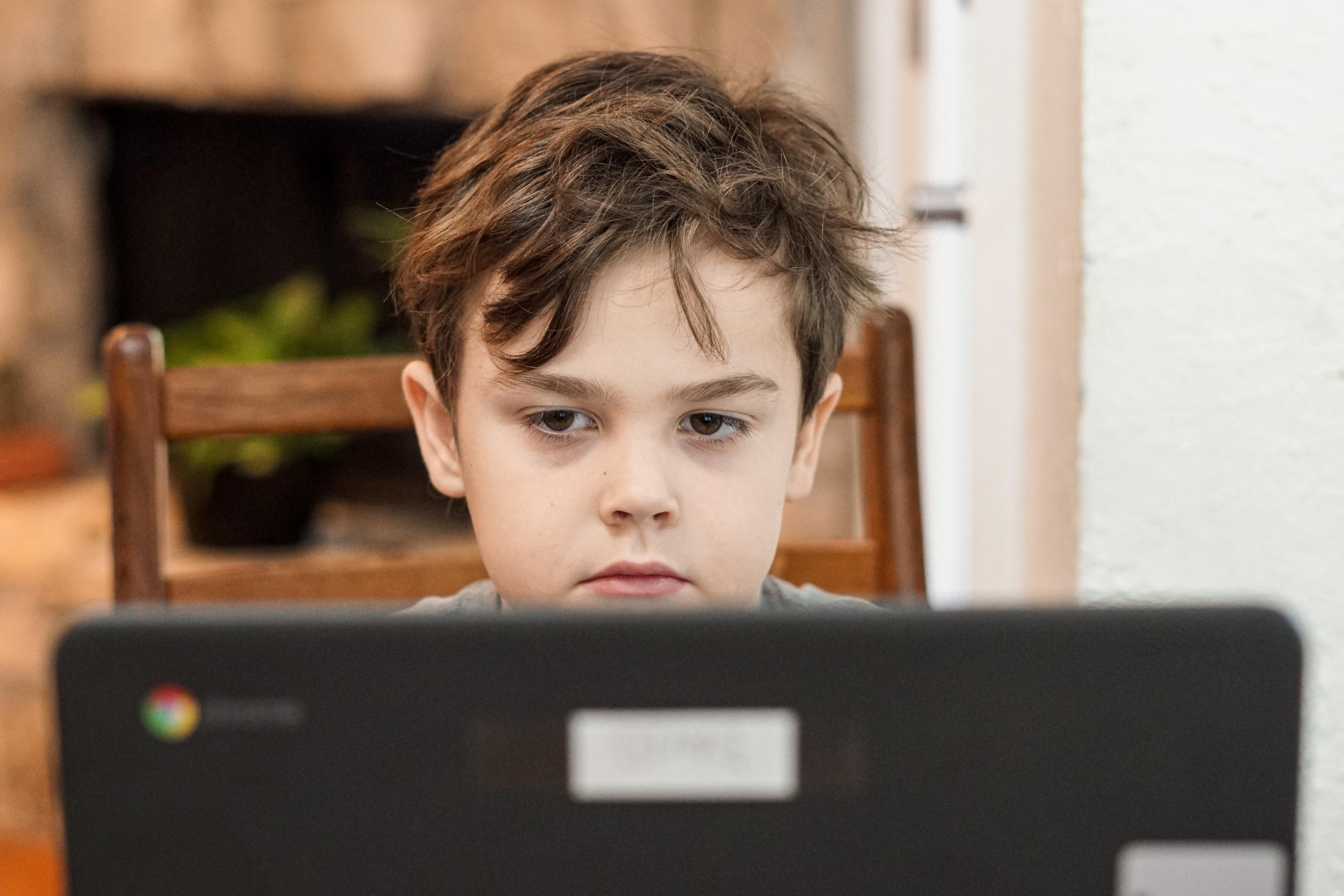Screen time and Explosive Behaviour
Screen time and Explosive Behaviour
Screen time: How did it get this bad?
Games, Youtube, Netflix, Screen time. They are all competing for our children’s attention. During Covid lockdowns our children were forced to use devices for online learning. They had limited access to the usual after school activities hanging with friends, swimming or soccer training. Therefore it is understandable that our children had more screen time. Devices and technology bring a wealth of benefits to our children’s lives however they can also be a little destructive. Limiting screen time can result in explosive and uncharacteristic behaviour.
Have you ever asked your child to unplug and come eat dinner only to be met with abuse? You might ask, “But why? How did my sweet child turn into this screaming aggressive human?”
If we are to have a chance of changing this behaviour we need to understand why it occurs.
First, let’s understand a little about the brain and how the reward pathway works.

Want to now more? Ask about our training today
Also, check out our blog on Tips to limit setting for screen time
The reward pathway and screen time
Naturally, anything to do with the brain is vastly complicated. So let’s try and simplify it now. In our brain we have a reward pathway designed to motivate us to do the things we need to do. This pathway uses neurotransmitters, the main one being Dopamine. Dopamine is responsible for making us feel great. I want you to quickly think about something you’re looking forward to. Maybe the weekend, or maybe it’s having the children baby sat, maybe it’s that camping trip in a month’s time. Think about it for a moment…
Wait for it…
Now, that smile on your face – that’s a tiny trickle of Dopamine in action. It spikes when we are praised by others, when we form new relationships, when we eat a really tasty meal, when we buy something we want or get paid. When we have sex, it skyrockets. When it spikes or skyrockets we feel great and so we are motivated to continue to do the things that we find pleasurable. Dopamine is also addictive, so when we aren’t engaging in pleasurable activities we can feel a bit crappy. Which in turn, motivates us to do the things we enjoy.

Screen time can hijack the reward pathway
Like all things that we enjoy, games release Dopamine. Everyone in the tech world understands and uses this knowledge. That is why algorithms exist to mine your attention, to keep you onsite longer. Game designers test their games with people to find out when they are getting bored and likely to switch off. Why every add and most shows you watch will change frames every 3 seconds to maintain your attention. When the game detects gamers switching off, the game learns it needs to build in a new reward.
Typically a game will flood the gamer with rewards in the opening parts of the game. Give the gamer lots of Dopamine to make them feel good about the game. Then they gradually wind back the rewards, so the gamer is left chasing more and needs to work harder and longer to gain the next reward. This new habit and its Dopamine release starts to compete with the other things our reward pathway was built for.
Imagine for a moment
Let’s pretend that we can measure Dopamine in simple numbers. And let’s say that brushing our teeth gives you 0.5 Dopamine, being praised by someone gives you 2 Dopamine. When we eat a good meal we get 6 Dopamine. If we succeed during work we get 7 Dopamine and when we have sex we get 100 Dopamine. Get this in an 8 hour day and you get 115.5 Dopamine. A good day!
A lot of games, like substances, can dump huge amounts of Dopamine in the brain at anyone time. Let’s say playing a game for 1 hour releases 150 Dopamine.
When you play for 8 hours you get 1,200 Dopamine. Now compare this to the 115.5 Dopamine for brushing, being praised, eating working, and having sex. What will you be more motivated to do? Play the game.
Moreover, you are less motivated to engage previously enjoyed activities as they pale in comparison. The less desirable activities like brushing your teeth or having a shower are not only forgotten, but an irritating inconvenience stopping you from gaming.
So why is my child blowing up over screen time?
When you consider the reward pathway and how it motivates us to do things, and how games hijack the reward pathway; games are not silly. On the contrary our child’s brain has been tricked into thinking the game is the single most important thing in their life. More important than eating or schoolwork. It has become extremely important to your child. When they wake it might be the first thing they think about. During the day they might be daydreaming or talking about it. For some with a gaming dependence every moment they are away from it is painful. They even dream about it.

Some reasons for the explosion before, during and after screen time
Being denied a reward outside the game
- This is a no brainer. Ever had a wonderful dream about something only to wake up and feel shattered that it wasn’t real? If you wake up excited about doing something and someone says no i.e. denying you your reward you’re going to get upset. Explosion.
Being denied a reward inside the game
- You are playing the game, you haven’t had a reward for a while. You are hanging out for that reward and you know that if you just beat this boss, move enough bricks, mine more gold etc you will get it. But the boss beats you and you lose. The dragon you have created over several days of playing dies. This can also happen when parents turn off the power or the internet drops out. Explosion.
Gaming withdrawal
- The reward pathway is also hijacked by substances and it produces the same outcomes described above. We know that withdrawal can be horribly unpleasant for those with substance dependence. Gaming withdrawal can be thought of in a similar way. Without a fix..Explosion.
Atypical Neurology
- Some brains are more prone to developing dependence on repetitive reward systems than others. Some brains are not as well developed at regulating emotions or understanding what is happening. In these instances you are more likely to see an Explosion

Need to know more?
Greenhouse runs training on this topic. Find out when the next training is by getting in touch here
Some more reasons for the explosion
Parental approaches to limit setting
- As parents we see 1s and 0s – meaningless binary code. We see our once active child wasting away. Therefore we see no point in the game. Parents may even it loathe it for what it has done to our child. We dismiss the game and its utility and will likely lose our temper when the game is defended by our child. As parents can become patronising, because our child doesn’t know better. And when we approach gaming with this mindset we are destined to create conflict. Everyone knows how upset you can get when someone dismisses the thing you like most, invalidates your perception of a good job or hard work. Remember that time at work that you did what your boss asked, you worked tirelessly to meet a deadline only to be told that they don’t need it anymore. And that you shouldn’t have spent so much time on it and that they aren’t even going to look at it. It’s crushing. Don’t be that parent, otherwise…Explosion
Miscommunication
- When you say “you can play for half an hour” and they hear “play for an hour”. When half an hour is up and you ask them to switch it off Explosion
Mistrust
- You wouldn’t be the first parent to know less than your child about your computer. It’s easy to suspect they are not doing their homework but actually playing a game. When this happens it can trigger feelings of betrayal and bitterness. And this is the mood we are in when we approach the issue. Explosion
Where to from here
Understanding all of these things can help us approach our children’s gaming a little differently. Approach with kindness, curiosity and understanding. With an understanding we create empathy, and with empathy we remain calm and are more likely to listen to our child and their rationale for playing. Listening is key in compromise and your family’s ability to move forwards.
Want to learn more? Greenhouse actually runs training on gaming and de-escalation of explosive behaviours. Get in touch here to enquire about upcoming training.
For tips on how to set limits on screen time, head to our Tips to limit setting for screen time blog.
